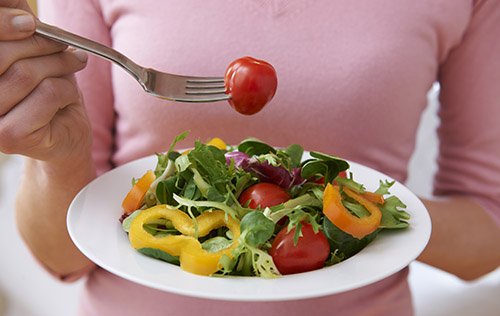The 5 Best Diets for Women Over 50
Written by Ansley Hill, RD, LD

For women who are trying to gracefully transition into later stages of life, the sheer number of diet options are dizzying — and not all of them are good for your health.
Many women over 50 are looking for diets to support heart or brain function, help control menopause symptoms, or boost their overall health.
The diets in this article were chosen based on the following criteria:
- Easy to follow. Aside from offering clear guidelines and simple shopping lists, the diet doesn’t require supplements.
- Adaptable. You can make changes according to your personal preferences and nutritional needs.
- Not overly restrictive. You won’t need to eliminate large groups of foods from your eating plan.
- Nutritionally balanced. You’ll eat plenty of healthy fats and protein, plus quality carb sources and micronutrients.
- Evidence-based. Scientific studies back the diet’s health benefits.
Here are 5 of the best diets for women over 50.
Best all-around: the Mediterranean diet
The Mediterranean diet is consistently rated as one of the healthiest eating patterns for almost anyone, including women over 50. Based on the eating patterns of people in Greece and Southern Italy in the 1960s, this diet is characterized by its low saturated fat content. It primarily comprises vegetables, legumes, fruit, nuts, and whole grains, and it features olive oil as the primary source of added fat (1Trusted Source).
Although the Mediterranean diet is predominantly plant-based, it also includes moderate amounts of fish and dairy, as well as small quantities of eggs, poultry, and red meat.
Decades of research demonstrate that this diet reduces your risk of various chronic, age-related illnesses like heart disease, diabetes, cancer, and mental decline (2Trusted Source).
One study also associated the Mediterranean diet with a 30% reduced risk of obesity in peri- and postmenopausal women (3Trusted Source).
The Mediterranean diet outshines many other popular diets because of its flexibility. No foods or food groups are off-limits — even treats and red wine are allowed sparingly.
Best for heart health: the DASH diet
According to the Centers for Disease Control and Prevention (CDC), heart disease is one of the leading causes of death for women over 50 (4Trusted Source). What’s more, rates of high blood pressure — a major risk factor for heart disease — increase significantly after the onset of menopause (5Trusted Source).
The Dietary Approaches to Stop Hypertension (DASH) diet is designed to prevent and treat high blood pressure, also called hypertension (6Trusted Source).
It’s characterized by its low sodium content and emphasis on foods rich in calcium, potassium, and magnesium, which are known to help reduce blood pressure.
Sodium restrictions vary depending on your personal needs. While some people limit their sodium intake to no more than 2,300 mg per day, others go as low as 1,500 mg. Both numbers align with the American Heart Association’s sodium recommendations (6Trusted Source, 7Trusted Source).
The DASH diet mainly comprises vegetables, fruit, and low-fat dairy, followed by moderate amounts of whole grains, legumes, nuts, seeds, fish, and poultry. Red meat and sweets are generally discouraged but allowed occasionally, and processed or cured meats are banned.
Limiting salty, ultra-processed foods in favor of nutrient-dense, whole foods offer additional benefits, such as reduced cholesterol and improved blood sugar control (6Trusted Source).
Best plant-based: the Flexitarian diet
The Flexitarian diet is a semi-vegetarian plan that’s predominantly plant-based but occasionally includes meat, eggs, dairy, and fish (8Trusted Source).
This eating pattern is currently most popular among women who are reducing their intake of meat for health, animal welfare, or environmental reasons (8Trusted Source).
The Flexitarian diet is a great option for anyone interested in boosting their intake of fiber and plant protein who also recognizes the nutritional value of animal products and wants to eat them as needed.
The Australian Longitudinal Study on Women’s Health suggested that strict vegetarians and vegans are at a greater risk of insufficient intake of nutrients like iron and omega-3 fats, which are important for women’s health (9Trusted Source).
Compared with such strict diets, the Flexitarian diet provides more iron and omega-3s from foods like red meat and fish. It also tends to be higher in calcium — an important nutrient for preserving bone health in postmenopausal women (8Trusted Source).
Early research suggests that this eating pattern offers additional benefits for body weight, heart health, and diabetes prevention (8Trusted Source).
Best for brain health: the MIND Diet
Age and sex are primary risk factors for dementia, the prevalence of which is significantly greater in women than men. In fact, roughly two-thirds of people with Alzheimer’s disease — the most common form of dementia — are women (10Trusted Source).
The MIND diet was developed to reduce the risk of Alzheimer’s disease and other types of age-related mental decline.
MIND is an acronym for “Mediterranean-DASH Intervention for Neurodegenerative Delay.” As the name implies, it combines elements of the Mediterranean and DASH diets that have been shown to support brain health.
It emphasizes foods like whole grains, berries, leafy greens, beans, olive oil, and fatty fish. Fried foods, red meat, butter, cheese, and sweets are discouraged.
Multiple studies have found that the MIND diet reduces dementia risk. While people who follow the diet closely have the greatest reduced risk, even those who adhere only moderately may still experience a slower rate of mental decline (11Trusted Source, 12Trusted Source, 13Trusted Source).
Best for women who are fed up with dieting: intuitive eating
If you’ve tried countless fad diets and are ready to ditch the dieting cycle for good, intuitive eating may be the perfect fit. Chronic restrictive dieting may lead to a variety of adverse effects, including bone loss, rebound weight gain, disordered eating, and diminished quality of life (14Trusted Source, 15Trusted Source, 16Trusted Source).
Intuitive eating is an anti-diet program designed to reform your diet mentality and build a positive relationship with your body and the foods you eat. It was created by dietitians who claim that chronic dieting causes physical and psychological harm.
Intuitive eating comprises 10 foundational principles based on concepts like making peace with food, honoring your health, and coping with your emotions without the use of food.
No foods are banned, and no rules regulate portion sizes or meal timing. Instead, the goal is to help you relearn how to listen to your body’s natural hunger and fullness cues so that you no longer depend on a particular diet to nourish yourself mentally or physically.
A recent study tied intuitive eating to improved psychological health and a reduced risk of disordered eating (17Trusted Source).
Additional research suggests that those who follow this plan may be more likely to maintain a healthy weight, though it’s worth noting that weight loss is not the goal (18Trusted Source, 19Trusted Source).
If you’re interested in this approach, you can check out the official guidebook “Intuitive Eating” by Evelyn Tribole, MS, RDN, and Elyse Resch, MS, RDN.
How to choose the best women’s diet for those over 50
If you’re a woman over 50, the best diet is one that you can maintain long-term — and it may not look the same as the best diet for your friend, sister, or neighbor.
Your diet should include foods that you enjoy, help you feel your best, and provide all of the nutrients your body needs.
When choosing between diets on this list, consider your personal needs.
If your primary goal is to reduce your blood pressure, opt for the DASH diet. If you want to focus on self-care and a healthy relationship with food, try intuitive eating. If you’re simply aiming for a healthier, more balanced diet, the Mediterranean or Flexitarian diets may be best.
You may notice that the aforementioned diets overlap significantly. Each emphasizes nutrient-dense, minimally processed foods that are rich in vitamins, minerals, fiber, healthy fats, lean protein, and antioxidants — all of which are key factors for any diet you’re considering.
Women over 50 should pay special attention to their intakes of specific nutrients, such as calcium, vitamin D, protein, and B vitamins. If you don’t think you’re getting adequate amounts of these nutrients, simple dietary adjustments or supplements may be warranted (20Trusted Source, 21Trusted Source).
Remember that you don’t need to make drastic changes to your diet. Small, incremental steps may still provide significant health benefits, even if you’re not following your chosen eating pattern perfectly.
Before making any major changes to your diet or adding any supplements to your routine, consult your healthcare provider to ensure it aligns with your needs.
The bottom line
If you’re a woman over 50, it’s often difficult to know which diet is best, especially as you’re experiencing physical changes associated with aging.
The Mediterranean, Flexitarian, DASH, and MIND diets, alongside intuitive eating, provide a variety of benefits for your heart, brain, and overall health.
Choosing the one that’s right for you requires thoughtful consideration of your personal goals and nutritional needs. The right choice is the diet that you can maintain long-term and keeps you feeling your best.
